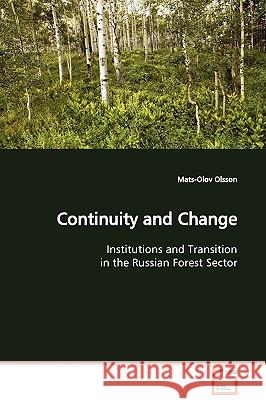Continuity and Change Institutions and Transition in the Russian Forest Sector » książka
Continuity and Change Institutions and Transition in the Russian Forest Sector
ISBN-13: 9783639099591 / Angielski / Miękka / 2008 / 228 str.
For reasons having to do with the Soviet resource allocation model, many Russian forest sector enterprises were miserably unfit to meet the market competition that started to emerge after the disintegration of the Soviet Union in the early 1990s. To avoid bankruptcy and stay alive in Russias transition towards a market-like system many enterprises chose to engage in non-monetary transactions, thus establishing what has become known as Russias virtual economy. The peculiar institutions ("rules-in-use") guiding actors behaviour in this odd system are incompatible with the operation of efficient markets. The topics discussed in this book can be framed through the following questions: What is the general role of institutions in the on-going changes in Russian society? Are there institutions that hamper the transition process towards democracy and a market economy? If so, how do they hamper this process? How can such institutions be changed to better serve the needs of the emerging market system? These and similar questions are addressed from several different but related perspectives in a number of studies of actors behaviour in the Russian timber procurement arena.











